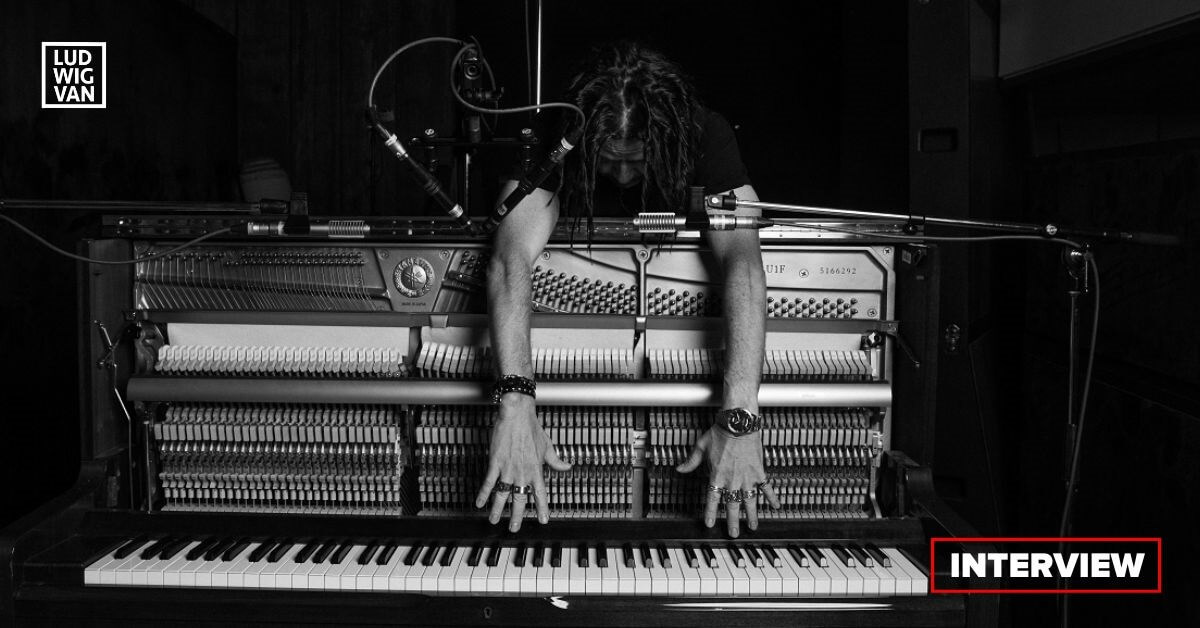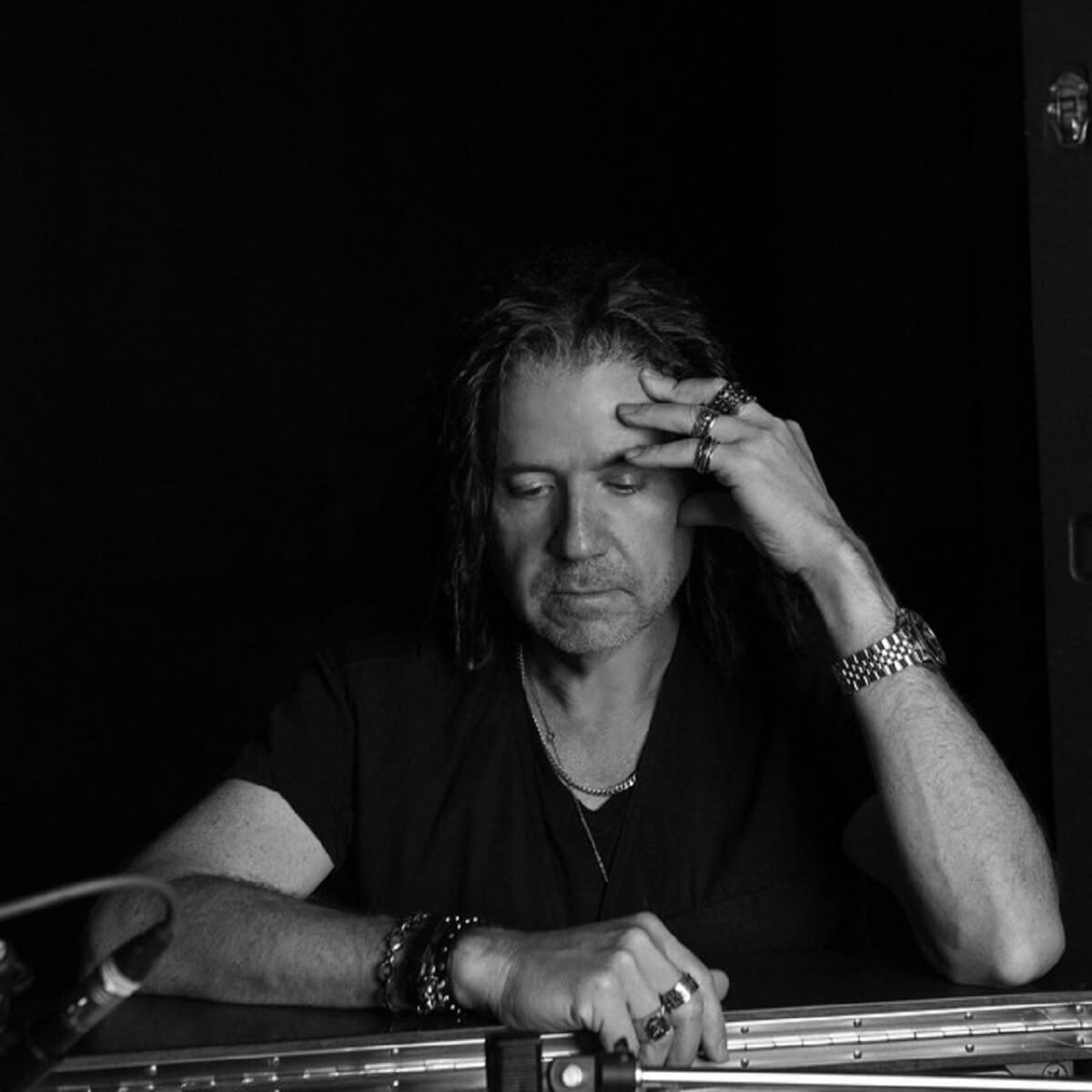
In 2023, after decades in the music business, Ron Lopata has come back to where it all started: classical music. His EP of solo classical piano compositions will be released in June.
Ron Lopata is best known as a musician for the years spent with Jacksoul, one of Canada’s seminal RnB bands. They were active from 1995 until 2009, touring the nation and beyond, and recording five studio albums. He became Vice President of A&R at Warner Music Canada in 2010, a position he held until recently.
To recording artist, he adds producer, engineer, and songwriter. Ron has worked with a long list of music industry greats as well as newbies, including Jully Black, Matt Dusk and Michael Kaeshammer, and with a track record that includes playing a part in seven platinum and gold singles.
The first track, titled Luminescent, was released in March, and has racked up more than 270K streams since then on Spotify alone. The second, Snowfall, followed in April, and Moonrise, the latest, is available today (May 12). The full album Sketches for Piano will be available on June 23 on Andante Piano, a division of Disruptive Records.
The Interview
“My dad, as a kid, he grew up playing violin,” Ron says. While his father, who grew up in Russia, Israel, and Canada, didn’t have the means for professional level music instruction, but he loved music, and also played mandolin and guitar. From his mother came a strong love for classical music in particular.
“As a kid, they really backed me.” In fact, he says his parents gave him the master bedroom to accommodate his piano.
He began he studies at the age of five, after his parents discovered that there were not one but two piano teachers in the building they’d just moved into. He remembers how they made what was a fortuitous choice. “Let’s go to the seventh floor, it’s closer,” he recalls. There, they found Marina Geringas, a Russian-born pianist who became one of the city’s leading teachers of elite music students.
He began taking lessons with Geringas, and when she moved her practice to the Royal Conservatory, he followed her there. Ron began intensive training. He remembers practising about two hours a day in addition to his regular school by about grade seven, and competing in the usual Kiwanis and Canadian Music Competitions. There were weekly lessons with Geringas, another hour of music history, then another hour of music theory later in the week — in addition to practising on his own.
He’d earned his ARCT at 17. “I was on full scholarships for five years,” he says, noting that it allowed him to continue no matter what the family finances were. “Basically, I spent Tuesday evenings, Friday evenings, a good chunk of Saturday [on music] While other kids were playing hockey, I had to practise.”
Not long after earning his ARCT, however, Ron’s father passed away from a brain tumour. It led to a change of heart, and a desire to become a physician. He turned his focus to medicine. In his third year of medical school, however, he had a kind of revelation one day working in a basement lab. “I had a human brain in front of me,” he recalls. “I thought, I don’t think I can do this.”
After walking out of the lab, he went straight to the Conservatory. “I rented a room, and played piano for about five hours,” he says. After the detour to medicine, his devotion to music flooded back. “My mom wasn’t happy at the time,” he laughs. “I finished my degree, and then I studied jazz at Humber.”
After studies at Humber with teachers he calls phenomenal, he spent a couple of years in the UK. On his return to Toronto, he began teaching at the RCM. He also joined Jacksoul.
“I was really looking for making music with other people,” he says, noting that the professional life of a classical pianist is often a solitary one. “Jacksoul, that was my family for a while.” He was also learning how to produce and write at the same time.

When Jacksoul ended, after the death of singer Haydain Neale, Ron turned to artist development. “I’d take on two each year,” he says, reporting a success rate of about 50 percent. After a few years, it was enough to turn heads at Warner. He was invited to join the A&R team, and it was an opportunity to pursue it on a bigger scale. “Now I get to do what I love with a team behind me.”
But, even during those busy years, whenever there was a piano in the room, it beckoned. “I always wander back to the piano,” he says. “It’s a beautiful thing.”
The Warner experience was rewarding, but clearly had to operate within whatever parameters the powers that be decided on. It left a growing kind of hunger. “I can’t ignore this bubbling pianist/composer/artist within me that I’ve suppressed for a number of years,” he says.
“Now it’s time for my voice to come out. It’s time for me to bring that joy out.”
Playing it since childhood means that the piano is truly second nature. “It’s not just a piano anymore, it’s a spiritual thing,” he says. For him, the music expresses emotions he couldn’t describe in words.
For his own compositions, he’s drawn to the growing neoclassical movement, whose appeal crosses demographic lines. “I’m focusing on the neoclassical world. I feel connected to it. I feel there’s an appetite for it,” he says.
Along with many composers as well as fans, he’s recognized the positive effects music can have on everyday life. “There’s an extreme hustle and grind every day,” he says. “I enjoy, and want to provide a […] calm, a serenity, a beauty. It’s just a feeling.”
His compositions are lyrical and traditional in style, with some jazzy harmonic elements in the mix. As far as style, he’s focused on melody. “I believe in really beautiful melodies. I do try to create some kind of diversity in what I compose. I try to explore for myself different keys, different moods.”
His favourite composers are Chopin, Debussy, and Liszt, and with his new focus on composition, he’s also taking time to learn more and more of their collective repertoire. “I want to keep evolving,” he says. “I don’t want to repeat myself.” It’s not all peace and positivity, all the time. “Sometimes I’m angry, and I write about that too.”
It seems strange, after such a long and publicly acclaimed career, to be talking about beginning. “I’ve always written,” he laughs. “It’s chapter six.”
In addition to recording, he’s looking for innovative ways and venues for performing his classical compositions, outside the usual concert halls and theatres.
“I’ve released tons of music — it’s the first time it’s my name,” he says. “It’s just me baring my soul.”
Along with the musical freedom, he relishes a return to the lifestyle. “I practise, I compose. I’m back to those things, and I love it. I haven’t been happier in so long.”
You can check out his piano compositions, including Moonrise, [HERE].
#LUDWIGVAN
Get the daily arts news straight to your inbox.
Sign up for the Ludwig van Daily — classical music and opera in five minutes or less HERE.
- PREVIEW | SUMMER OPERA LYRIC THEATRE Presents Handel’s Xerxes, Mozart’s Idomeneo & Puccini’a La Boheme July 26 To August 4 - July 26, 2024
- PREVIEW | YENSA Festival V.2 Offers Black Flames Performances & Other Ways To Celebrate Black Women In Dance - July 25, 2024
- PREVIEW | Canadian Talent Conspicuous In The Met: Live In HD 2024-25 Season - July 25, 2024



